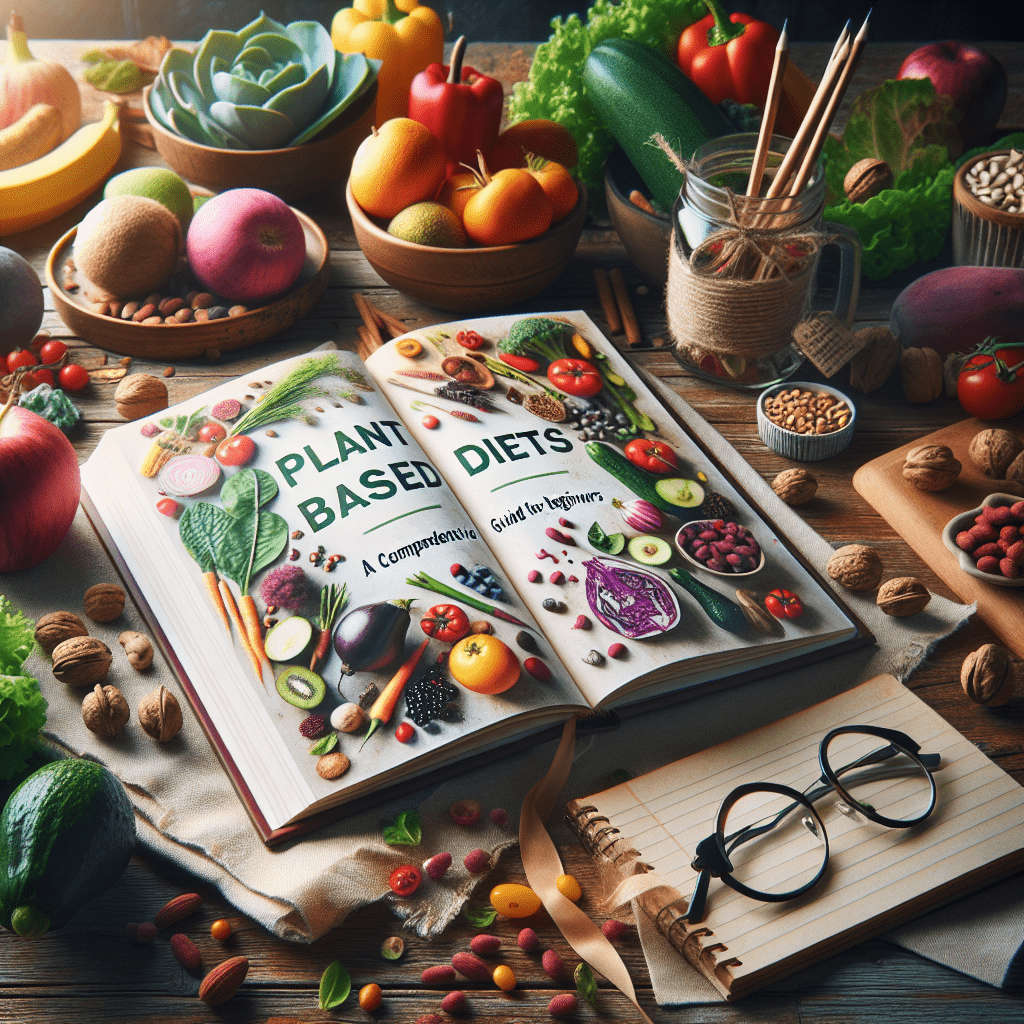[ad_1]
### Plant-Based Diets: A Comprehensive Guide for Beginners
In recent years, the trend of plant-based diets has surged in popularity. Whether driven by concerns for health, environmental sustainability, or animal welfare, more people are opting to reduce their consumption of animal products. The transition to a plant-based diet can be overwhelming for beginners, but with the right guidance, it can also be an enriching journey towards improved health and wellness. This comprehensive guide aims to equip you with the knowledge needed to embark on this journey.
#### What is a Plant-Based Diet?
A plant-based diet centers around foods derived from plants, with few or no animal products. This isn’t limited to just fruits and vegetables; it also includes nuts, seeds, oils, whole grains, legumes, and beans. It doesn’t mean that you are vegetarian or vegan and never eat meat or dairy. Rather, you are proportionately choosing more of your foods from plant sources.
#### Why Choose a Plant-Based Diet?
**Health Benefits:** Numerous studies have linked plant-based diets with lower risks of heart disease, hypertension, type 2 diabetes, and certain cancers. Plant foods are high in fiber, vitamins, and minerals, which contribute to better health and weight management.
**Environmental Impact:** Switching to a plant-based diet can significantly reduce your carbon footprint. Plant-based foods require less water, land, and energy to produce and are associated with lower greenhouse gas emissions than meat production.
**Ethical Considerations:** For many, the decision to go plant-based is also a stance against animal cruelty and the ethical issues surrounding industrial animal farming.
#### Getting Started with a Plant-Based Diet
**1. Gradual Transition:** Switching to a plant-based diet doesn’t have to be abrupt. Start by including more plant-based meals in your diet and reducing meat and dairy consumption gradually.
**2. Explore Plant Proteins:** Familiarize yourself with plant-based protein sources such as lentils, beans, chickpeas, tofu, and tempeh. Incorporating these into your diet ensures you’re meeting your protein needs.
**3. Discover Dairy Alternatives:** Today, there are numerous delicious and nutritious plant-based alternatives to dairy. Almond, soy, oat, and coconut milks are widely available and can replace cow’s milk in almost every context.
**4. Focus on Whole Foods:** While there are many processed plant-based products on the market, focusing on whole, unprocessed foods will provide the most benefits.
**5. Experiment with New Recipes:** One of the joys of adopting a plant-based diet is exploring new cuisines and recipes. From hearty stews to vibrant salads, there is no shortage of delicious plant-based dishes.
**6. Read Labels:** When buying packaged foods, it pays to read labels carefully to ensure they do not contain hidden animal-derived ingredients.
**7. Supplement Wisely:** Certain nutrients, such as vitamin B12, vitamin D, omega-3 fatty acids, and iron, may be harder to obtain from a plant-based diet alone. Consult with a healthcare provider about whether supplementation is necessary for you.
**8. Join a Community:** Find community groups, online forums, or social media pages dedicated to plant-based living. Such communities offer support, answer questions, and share resources which can be incredibly useful for beginners.
#### Tips for Eating Out
Eating plant-based meals at restaurants is easier today than ever before. Most menus offer plant-based options, or dishes that can be modified to fit a plant-based diet. Don’t hesitate to ask the staff for recommendations or clarifications about the ingredients.
#### Common Misconceptions
**1. Plant-Based Diets Are Expensive:** While specialty products can be costly, basic plant foods like grains, beans, and seasonal vegetables are generally affordable and widely available.
**2. Lack of Protein:** A common concern is that plant-based diets don’t provide enough protein. However, by incorporating a variety of plant proteins, you can easily meet your protein needs.
**3. Limited Food Choices:** Some fear a plant-based diet is restrictive. In reality, it opens up a new array of foods and flavors to explore.
### FAQs
**Q: Do I need to become a vegetarian or vegan to follow a plant-based diet?**
A: No, a plant-based diet prioritizes plant foods but doesn’t necessarily exclude animal products completely. It’s about making plant foods the majority of your diet.
**Q: Can I get enough protein on a plant-based diet?**
A: Yes, with careful planning and incorporating a variety of plant protein sources, such as legumes, tofu, and quinoa, you can meet your protein needs.
**Q: Is a plant-based diet the same as a vegan diet?**
A: No, a plant-based diet focuses on foods derived from plants but may include occasional animal products. A vegan diet excludes all forms of animal products.
**Q: Can I eat processed foods on a plant-based diet?**
A: While processed foods can be a part of a plant-based diet, focusing on whole, unprocessed foods is recommended for optimal health.
**Q: Will I need to supplement my diet?**
A: Depending on individual dietary choices and health needs, some may need to supplement nutrients such as vitamin B12, vitamin D, omega-3 fatty acids, and iron.
Embracing a plant-based diet can be a delightful and healthful journey. It’s an opportunity to discover new foods, learn about nutrition, and contribute to a more sustainable and ethical world. Remember, transitioning to a plant-based diet doesn’t need to happen overnight. Making gradual changes and exploring a variety of plant foods can make the shift enjoyable and fulfilling.
[ad_2]

Leave a Reply